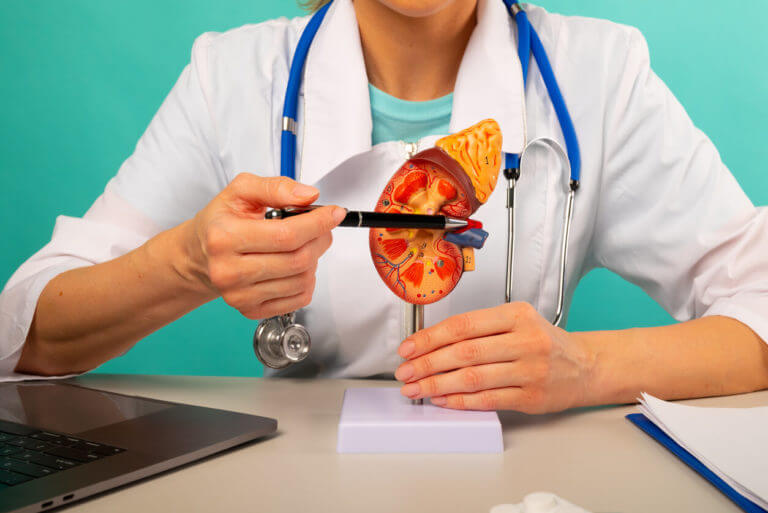
Dealing with kidney stones can be a painful experience. These hard mineral deposits can cause severe discomfort and disrupt your daily life.
While there are various treatment options available, consulting a urologist is often the most effective way to address kidney stones.
In this article, we will explore what kidney stones are, why a urologist is crucial for proper diagnosis and treatment, and what steps they may take to help you.
What Are Kidney Stones?
Kidney stones are solid particles that form in your kidneys when certain minerals and salts in your urine crystallize. These stones can be as small as a grain of sand or as large as a golf ball. Their size and location determine the severity of symptoms, which may range from mild discomfort to extreme pain.
Common symptoms of kidney stones include:
- Sharp pain in the back, side, or lower abdomen
- Blood in the urine
- Nausea and vomiting
- Frequent urge to urinate
- Painful urination
If you notice these kidney stones symptoms, it is crucial to seek professional help immediately. Left untreated, these stones can lead to complications such as urinary tract infections (UTIs) or kidney damage.
Why See a Urologist for Kidney Stones?
A urologist is a specialized physician trained to treat conditions affecting the urinary tract system, including the kidneys and men’s reproductive system. Here is why turning to a urologist is your best option for kidney stone treatment:
1. Accurate Diagnosis
Urologists use advanced diagnostic tools like CT scans and ultrasounds to identify the size, location, and type of kidney stones. Proper diagnosis is essential for determining the most effective kidney stones treatment plan.
2. Expertise in Treatment Options
Whether you require medication, non-invasive procedures, or surgery, urologists are well-versed in all methods of kidney stone treatment. They can tailor a plan to suit your specific needs.
3. Non-Surgical Treatment Options
For smaller stones, urologists often recommend kidney stone treatment without surgery. This may include medications like alpha blockers, which help relax the muscles in your urinary tract, allowing stones to pass more easily.
A urologist may also recommend drinking plenty of water to flush out smaller stones naturally and reducing sodium and oxalate-rich foods to decrease stone formation.
4. Surgical Expertise
If your kidney stones are too large to pass naturally, urologists can perform minimally invasive procedures or surgery to remove them. Common surgical techniques include extracorporeal shock wave lithotripsy (ESWL) and ureteroscopy.
5. Preventive Guidance
Urologists not only treat kidney stones but also help identify the underlying cause. They can recommend dietary changes, hydration tips, and medications to prevent future kidney stones.
Given their specialized training and experience with kidney stones, a urologist is undoubtedly the best choice for your care.
When Should You See a Urologist?
If you think you might have kidney stones, do not delay seeking medical attention. You should consult a urologist if you experience:
- Intense or recurring abdominal or side pain
- Difficulty urinating or blood in the urine
- Persistent nausea or vomiting
- Fever or chills, as these may indicate an infection
Timely intervention can prevent serious complications and ensure a smoother recovery.
How Urologists Provide Long-Term Kidney Health
Once your kidney stones are treated, a urologist will focus on preventing future episodes. Based on your specific case, they might recommend:
- Increasing your daily water intake to produce at least 2 liters of urine
- Limiting foods high in oxalate, like spinach and rhubarb
- Reducing animal protein in your diet
- Taking prescribed medications to manage contributing conditions, such as high calcium levels
By maintaining regular follow-ups with your urologist, you can keep your kidneys healthy and minimize the risk of recurring stones.
Urologist in Newark, NJ
If you suspect you have kidney stones or have experienced symptoms indicating a problem, do not wait. A urologist is your trusted partner in addressing the issue quickly and effectively. By diagnosing your condition, offering expert treatment, and providing long-term solutions, a urologist ensures better outcomes for your health.
At Hudson MD Group, we specialize in patient-centered care, offering comprehensive kidney stone treatment and expert preventative advice. We offer advanced diagnostic tools, minimally invasive treatment techniques, and evidence-based prevention strategies to improve your quality of life.
We understand that each patient is unique and requires customized care, which is why we take the time to listen and personalize our treatment plans.
For more information about kidney stones or to schedule a consultation with our urologist, call our office today at (973) 705-4914 or use our convenient appointment request form. We look forward to helping you!


